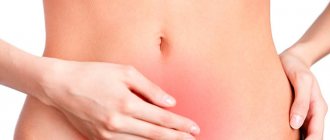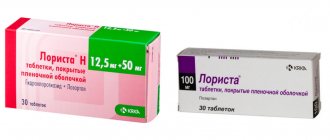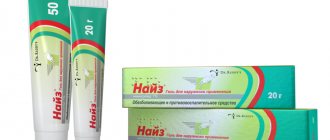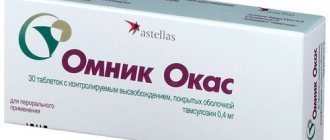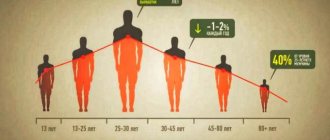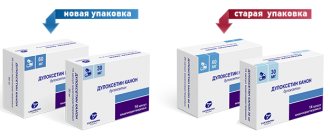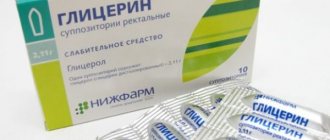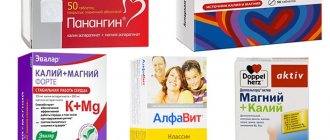What drugs and when are used for PMS?
Anti-PMS pills can be divided into 2 groups.
- Sedatives. Sedatives help calm nerves, eliminate aggression, and improve sleep. They improve mood, which often “jumps” for many girls before menstruation. Preference should be given to sedatives of herbal origin. However, in case of indomitable aggression, potent drugs (tranquilizers, antidepressants) can also be used.
- Painkillers. Pain in the chest, lower back, lower abdomen, and sometimes in the legs during PMS can be so intense that it is impossible to cope without painkillers. Usually, relatively mild medications like paracetamol help in such circumstances. But in case of intense pain, it may be necessary to use combined agents containing an antispasmodic and an analgesic.
Read more about premenstrual syndrome >>
Herbal sedatives can be taken independently, but if the use of stronger drugs is necessary, consultation with a doctor is required. Only a specialist (neurologist or psychiatrist) can prescribe an antidepressant or tranquilizer, since in this case an individual approach is important. In addition, such medications are not sold in pharmacies without a doctor’s prescription, and if used uncontrolled, adverse reactions can develop that are hazardous to health.
And yet, how to cope with PMS?
If a woman becomes too emotional, she may laugh and suddenly cry. It would be best to use sedatives, preferably herbal, on the advice of a doctor. Ideally, of course, do pleasant, non-stressful things. Drink a cup of aromatic tea, turn on pleasant music, light candles.
See also: Healthy and beautiful female legs
Before menstruation, problems with the intestines may begin. You can avoid them by adjusting your diet. Exclude carbonated water, fast foods, flour, legumes, nuts, and cabbage from your diet.
Palms, feet, armpits constantly become wet before menstruation. This phenomenon is called hyperhidrosis. Also, an unpleasant odor may appear. On such days, you need to shower more often and use a reliable deodorant. Eat porridge and low-fat foods.
A frequent companion to PMS is swelling. To avoid them, do not drink liquids 1.5-2 hours before bedtime, exclude salty foods. You need to drink kefir, eat apples, and move more. You can brew diuretic teas.
It is useful and necessary for everyone to take vitamins. It is useful to drink a glass of milk with a spoon of honey at night. Milk is rich in calcium, and honey contains a sufficient amount of magnesium.
Herbal sedatives for PMS
Tablets that relieve PMS and calm nerves, which contain extracts of medicinal plants, are the safest. The range of medications is quite wide, so a woman can choose the best option for herself.
Valerian
Tablet preparations containing extract of valerian officinalis or Bulgarian root extract perfectly calm the nerves. They fight increased aggression and normalize sleep. It is known that during PMS, many women suffer from insomnia, so tablets with valerian will be a good remedy to relieve this problem.
The main contraindication to the use of such drugs is individual intolerance.
Motherwort
Motherwort or Motherwort Forte are drugs that have a sedative and hypnotic effect. Among other things, the drugs tend to lower blood pressure. During PMS, some girls notice an increase in blood pressure, which, however, is extremely rare. Motherwort preparations will help eliminate this unpleasant and sometimes dangerous problem.
You can take such pills not only before your period. To reduce the risk of aggression and mood swings during PMS, you need to take the medicine throughout the entire cycle. But it should not be used by patients with hypersensitivity to motherwort components or excipients, hypotension and prolonged depression.
Alora
A passionflower-based drug, Alora, will help calm nerves during PMS, get rid of irritability and aggressiveness, and improve your mood. These are pills that cope with emotional depression, normalize sleep, and “pull out” depression. They can be taken not only for PMS or menstruation, but also during menopause.
Novo-Passit
Novo-Passit tablets have a combined herbal composition. The drug is also available in the form of a syrup for oral use, so women suffering from mood swings and increased aggression during PMS have an alternative. The medicine calms the nerves well, improves the psycho-emotional state, and improves sleep. Among other things, the medication helps relieve headaches, migraines and digestive disorders, which also often occur in women with PMS.
There are a huge variety of herbal sedatives. Instead of the above medications for PMS, you can take Sedavit, Persen, Tricardin (dispensed in the form of drops, acts quickly and gently), or their analogues.
Main forms of PMS:
- Neuropsychic. It is characterized by irritability, depression, and aggressiveness. There may be increased sensitivity to sounds and smells, numbness in the hands, increased gas formation, and engorgement of the mammary glands.
- Edema. Swelling of the face, fingers, breast engorgement, bloating, and fluid retention are clearly evident.
- Cephalgic. Headache, irritability, nausea, vomiting, sensitivity to smells and sounds, and dizziness appear.
- Crisis. Manifests itself in sudden crises, starting with an increase in blood pressure, the emergence of an unreasonable feeling of fear of death, numbness of the limbs, and tachycardia.
Anxiolytics for PMS
Tranquilizers are rarely prescribed for PMS, and only when sedative medications are ineffective. These are potent drugs that can cause serious complications if taken incorrectly or uncontrolled. The most commonly prescribed medications in neurology from the group of tranquilizers are anxiolytics.
These remedies improve mood, completely eliminate aggression, irritation, depression and depression.
We will provide a list of the most famous and frequently prescribed anxiolytics, but for safety reasons, we will not indicate the rules for their use. This will be done by a neurologist or psychologist during your appointment.
So, most often, with severe irritation before menstruation, women are prescribed the following anxiolytics:
- Phenazepam;
- Diazepam;
- Estazolam;
- Afobazole;
- Strezam.
Medicines are taken, as a rule, once a day. But if necessary, the doctor can increase the dosage. Doing this on your own is categorically unacceptable, since everything should happen gradually – once every 7 – 14 days.
Unfortunately, anxiolytics very often cause side effects, which, combined with the symptoms of premenstrual syndrome, can make this difficult period simply unbearable for a woman. In particular, negative reactions of the body manifest themselves:
- drowsiness;
- lethargy;
- decreased mental and physical activity;
- psychological addiction.
Anxiolytes are intended for long-term use, so girls naively believe that these medications can only be used while the body is preparing for menstruation.
Usually, such strong medications are resorted to if there are mental disorders or disorders of the nervous system that are not associated with the period before menstruation.
Therefore, if you suddenly experience neurasthenic or depressive symptoms of PMS that were previously absent, you should consult a doctor. It is necessary to eliminate the cause of the clinical picture, then premenstrual syndrome will go away on its own.
Symptoms of premenstrual syndrome (PMS)
Particular manifestations of PMS are different and individual for each woman. There are about 150 variations of mental and physical signs. Conventionally, they can be divided into 3 groups:
- neuropsychic disorders (tearfulness, depression, irritability, aggression, fatigue);
- autonomic disorders (headaches and heart pains during PMS, dizziness, vomiting, irregular heartbeat, pressure surges);
- hormonal imbalances causing fever, thirst, swelling, increased gas formation, shortness of breath, blurred vision.
Painkillers
Pain during PMS is rarely severe. But every woman’s body reacts differently to preparing for her period, so sometimes she has to take painkillers.
You can resort to using classic Analgin, Paracetamol, Panadol or Citramon. But if the pain is too intense, then these pills will be ineffective. In such circumstances, the following will help:
- Medicines with ibuprofen: Nurofen, Ibufen, Gofen, Ibuprofen.
- Medicines with nimesulide: Nimesil, Nimid, Nimesulide.
- Preparations based on ketorolac: Dolak, Ketanov, Ketorol, Acular KS, Ketocam.
If a woman is intolerant to NSAIDs, you can resort to taking combined medications based on antispasmodics and analgesics. Thus, the products Combispasm, Spazmalgon, Spazmalin, Spazgan, etc. help to effectively eliminate headaches and pulling sensations in the lower abdomen. Usually it is enough to take 1 tablet for the pain syndrome to completely disappear. If necessary, the use of the medication can be repeated, but not earlier than 4 hours after the first dose, otherwise the woman will have to face unpleasant side effects that can aggravate the PMS condition.
Medicines to treat premenstrual syndrome
Premenstrual syndrome (PMS) is a pathological condition of the female body, manifested by mental and physical symptoms. In this case, the signs of PMS can be either subtle (blurry) or pronounced. Since there is no specific list of reasons for the manifestation of the disease itself and its cyclical nature, drugs for the manifestations of PMS should be used under the supervision of a doctor.
The medications used may vary in type, but are aimed at normalizing the functioning of the nervous system or are used to relieve disturbing painful sensations and improve the general condition of the body. Taking medications, as a rule, is carried out during the preparation of the female body for the onset of the next menstruation and should only affect the disturbing symptoms observed in women, since there is a big difference in increased irritability and increased pain in the lower abdomen.
How to improve your mood
A frequent accompaniment of PMS is low mood and depression. This condition occurs due to a sharp change in hormone levels. During the appointment, the gynecologist may prescribe the patient mild antidepressants, which will increase resistance to anxiety and irritability. For PMS, such tablets should be taken in a course for a good mood, the dosage should be determined by the doctor. Among modern mood-lifting drugs, Fluoxetine and Grandaxin have proven themselves well.
In more severe cases, serious drugs that affect brain activity (nootropics and inhibitors) are prescribed. After carrying out the necessary tests, a woman may be prescribed pills such as Sonapax.
Drinking such drugs without consulting your doctor is dangerous to your health!
Unpleasant symptoms
Since each woman’s body is individual, premenstrual syndrome begins to appear 1-14 days before the onset of menstruation. Therefore, the main symptoms of PMS can be identified:
- there is a pulling pain in the lower abdomen;
- the mammary glands become coarser and become painful;
- swelling occurs and thirst increases;
- unstable heart rhythm and pain in the heart area appear;
- appetite disappears completely or, conversely, increases;
- there is a feeling of nausea and dizziness;
- sometimes chills occur or the body temperature rises sharply;
- allergic rashes appear;
- there is constipation or diarrhea;
- acne appears;
- noticeable weight gain.
In addition to the physical manifestation of discomfort, you have to deal with PMS symptoms such as:
- the first signs of PMS are short temper, nervousness, irritability;
- memory impairment;
- increased lacrimation;
- sleep disturbance;
- increase or decrease in libido (sexuality).
Typically, relief occurs after the onset of menstruation. People who engage in mental work or have chronic illnesses are often familiar with PMS.
Drugs to reduce the symptoms of premenstrual syndrome (PMS)
Features : medications are prescribed depending on the form and severity of PMS manifestations.
For minor manifestations of the syndrome, doctors usually recommend vitamins, magnesium preparations, homeopathic and sedatives to make you feel better.
In difficult cases, hormonal drugs, antidepressants, diuretics and painkillers from the group of non-steroidal anti-inflammatory drugs are sometimes prescribed.
Treatment of severe forms of PMS is carried out only as prescribed and under the supervision of a doctor.
The most common side effects : allergic reactions.
Main contraindications : individual intolerance.
Remember, self-medication is life-threatening; consult a doctor for advice on the use of any medications.
Buy the printed version of the directory at kiosks in your city or order it from the editorial office by phone or by e-mail with the mark PM (indicate your full name, postal address and telephone number in the letter).
You may also be interested
Top 5 read
2020 JSC "Arguments and Facts"
General Director Ruslan Novikov. Editor-in-Chief of the weekly “Arguments and Facts” Igor Chernyak. Director for development of digital direction and new media of AiF.ru Denis Khalaimov. Chief editor of the AiF.ru website Vladimir Shushkin.
The media “aif.ru” is registered with the Federal Service for Supervision of Mass Communications, Communications and Cultural Heritage Protection, registration number El No. FS77-31805 dated April 23, 2008. Founder: Argumenty i Fakty JSC. The website “aif.ru” operates with the financial support of the Federal Agency for Press and Mass Communications.
Chief editor of the site: Shushkin V.S. e-mail, tel. 8 495 783 83 57. 16+
All rights reserved. Copying and use of complete materials is prohibited; partial quotation is possible only with a hyperlink to the website www.aif.ru.
